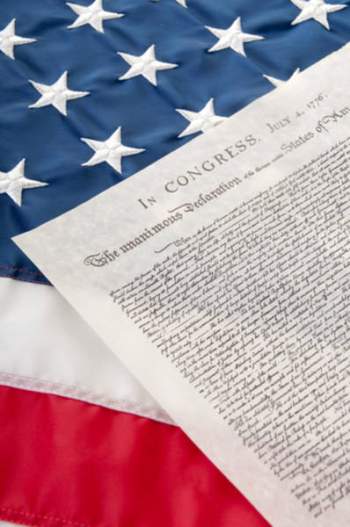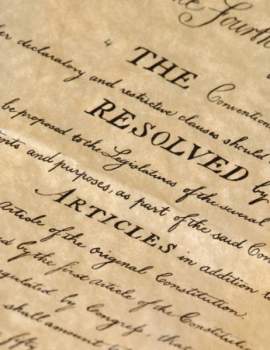
Contracts Clause Explained

Popular In Constitution
Purpose Of Lifetime Appointment And Pros And Cons Enumerated Powers Bicameral Legislature Background Article 3 Of The Constitution We The People 1st Amendment Who Wrote The Constitution Judicial Review Equal Protection Clause 5th Amendment 10th Amendment Three Fifths Compromise
Article 1 of the United States Constitution - within its ten sections - establishes the collective rights of all legislative bodies in the United States, such as Congress, the House of Representatives, the Senate, as well as the individual State governments. Specifically, within Section 10, it is written that a State is not allowed to pass any law that “impairs the obligation of contracts”. This is known as the Contracts Clause.
For example, although most states are permitted to establish their own taxes within their borders, they are not permitted to regulate interstate taxes. This delicate balance allows them certain individual freedoms. However, the Contracts Clause disallows any State to invalidate anything on a nationwide level, including the levying of taxes or the abolition of contracts. As a result, contracts have been the binding framework of symbiotic agreements between citizens and entities. Legal contracts are considered to be the glue that allows the general public, as well as the Government, to engage in honest and volitional business. The only instance in which contracts can be nullified is when they are ruled to in violation of public health and welfare.
In 1905 in the case of Lochner vs. New York, the inclusion of the Contracts Clause was the deciding factor of the case. Lochner, the owner of a bakeshop in Utica, New York, had been allowing himself and his employees to work for more than 60 hours per week. All of his employees had agreed to work the assigned hours under contract. However, the New York Bakeshop Act stated that bakeshops were not permitted to operate in excess of either 60 hours per week, or 10 hours per day.
The State of New York ordered Lochner to cease conducting his business that was in clear violation of the Bakeshop Act. However, Lochner, referencing the Contracts Clause, stated that the State did not have the right to undermine a contract established between two parties if said contract was not in violation of health and welfare. In addition, Lochner stated that the New York Bakeshop Act was in direct violation of his Fourteenth Amendment Rights, stating that the Act was infringing on ‘Life, Liberty, and Pursuit of Happiness’.
As a result, and per the Contracts Clause and the Fourteenth Amendment, the Supreme Court voted in favor of Lochner, explaining that the nature of the contract established between Lochner and his employees were legal and binding, thus disallowing the State of New York to negate them in any way.
The Contracts Clause established in the Constitution allows for contracts, like taxes, to be commercial certainties on which we are able to rely with the hopes that they provide equal parameters for every citizen to follow. Unless taxes or contracts are deemed to be in violation to health or welfare, they are to be treated as volitional, binding agreements between the Government, the State, and the citizens of the United States.
NEXT: What Is Eminent Domain





















